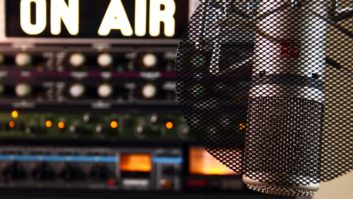The author is membership program director of the National Federation of Community Broadcasters. NFCB commentaries are featured regularly at www.radioworld.com.
In February, the Federal Communications Commission voted to permit AM stations to expand the range of their FM translators. It’s a change that should be worrisome to low-power FM stations and community radio as a whole.
To a lot of friends in community radio, the whys and wherefores of towers and placement may make you glaze over a little. There are many complexities when it comes to where one’s tower sits. However, the latest modifications should be on your organization’s radar. For a noncommercial broadcaster, when that new neighbor’s tower moves in, you’ve got new issues.
With Ajit Pai now leading the FCC, the commission has promised reforms to many regulations. Many commercial broadcasters and others have welcomed revision to what were seen as old guidelines that are out of step with today’s world. However, Pai’s comments have not gone without dissent. Commissioner Mignon Clyburn is among the most prominent critics of the agency’s direction, including on consideration of abolishing the main studio rule. Amazon, the American Civil Liberties Union, Kickstarter and Creative Commons are included in a coalition to come out against Pai in the net neutrality debate. This faction is now organizing a day of protest in July on net neutrality.
Although community broadcasters certainly have opinions about the main studio rule and net neutrality, AM translators may not be high on the list of concerns. Here’s why these changes should get the attention of community radio.

The old translator rules specified that AM stations could add FM translators to improve their signals. This improvement was possible so long as those translators went only so far as either their daytime service contour or within a 25-mile radius, whichever was smallest. The rules approved in April toss aside the limit. For those who applied for relocation last year, the new rules essentially allow you to move as many as 250 miles from your original spot.
Some argue these fill-in translator rule changes provide more flexibility for broadcasters. The Prometheus Radio Project filed a petition on the issue, protesting the move. It identifies a number of matters that are of much interest to community radio broadcasters.
The AM translator expansion means spots on FM get tighter. With AM translators moving beyond the original limits, Prometheus contends LPFMs will be virtually unable to move within their community of service due to all of the translators that could move into their areas. As many broadcasters know, moves are part of a station’s life; sometimes your tower location and the relationship with one’s landlord changes, and a move may be necessary. For LPFMs, an inability to move could be lethal.
The AM translator expansion further tests the FCC’s longtime commitment to educational broadcasting. This latest development will serve largely commercial outlets. As such, there will be more pressure put upon noncommercial broadcasters for signal space in an area. While these translators aren’t new stations per se, commercial broadcasters predominantly forward them. Less resourced nonprofit stations face a disadvantage. Again, with much leaner reserves, noncommercial LPFM faces the biggest obstacles and must be considered.
Then there’s the disquiet over the lack of public comment. The announced switch was made without opportunity for broadcasters and concerned individuals to discuss the potential impact that altering the rules in place might have on stations and listening. While commissioners are a smart bunch, hearing from the public is a chance to be better informed about issues one may not have considered. It also gives Americans a moment to dialogue with the stewards of the public’s airwaves.
Regardless of where this matter ends up, the absence of public comment should be a worry to all of us. I don’t contend there is nefarious intent. In fact, I appreciate the commission, with an ambitious new chair, is seeking to address what is seen as needed transformation. Revisions can’t come at the cost of process and inclusion, though.
The translator rule alterations will most affect low-power FM stations. Although newer, LPFM is a valued part of noncommercial broadcasting. Frankly, detrimentally affecting LPFM is something community radio simply cannot afford. LPFM has reenergized community radio with its localism, invigorating programming and unique voice. The New York Times famously profiled last fall growth in low-power community radio. Rightfully so. LPFM offers something special to media, communities and democracy.
It remains unclear whether and when Prometheus’ petition will receive the measured consideration it deserves. The group is expected to address several topics, including the petition, at an upcoming Low Power FM Summit. Whatever happens, though, the commission must take the needs of LPFM more seriously.










